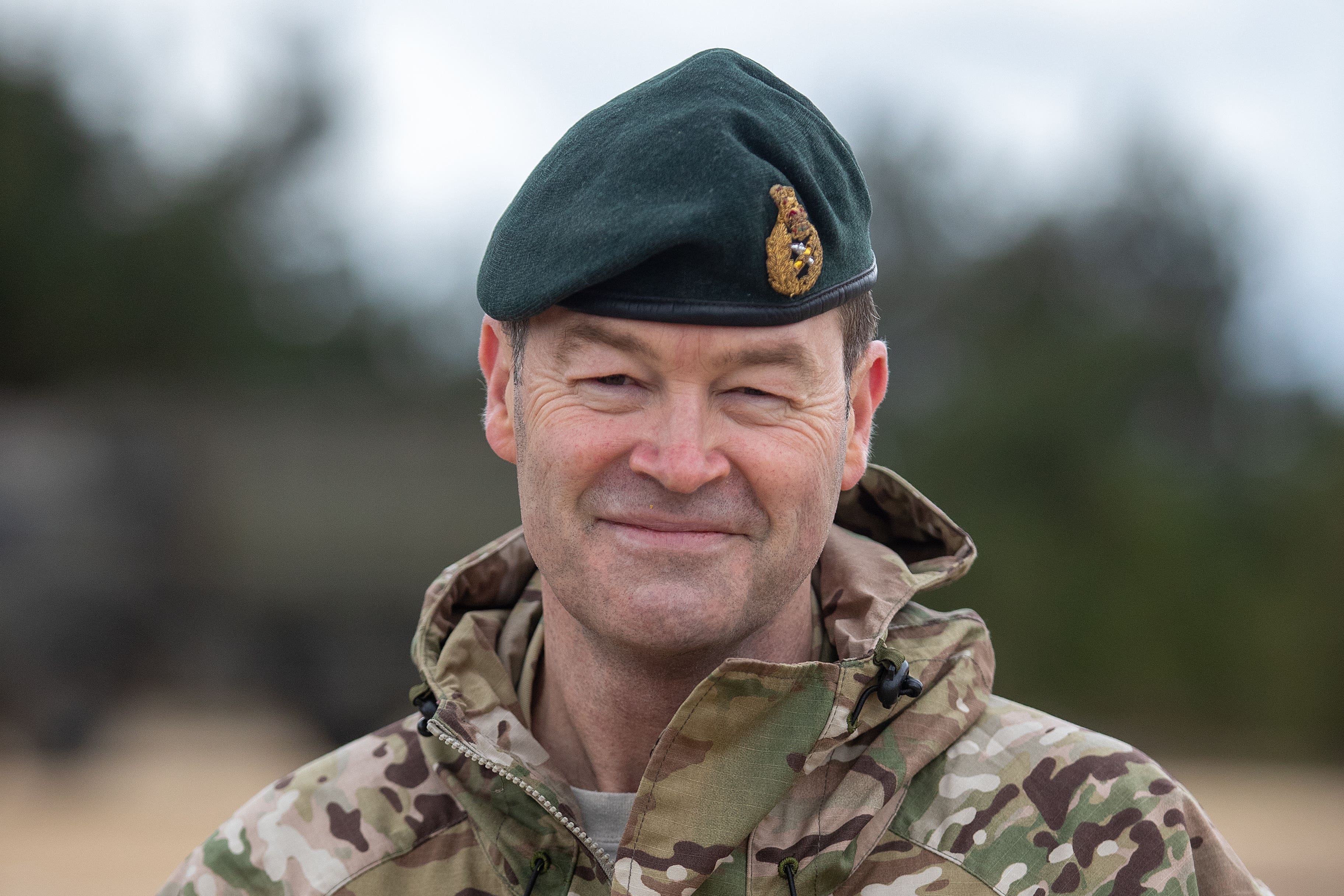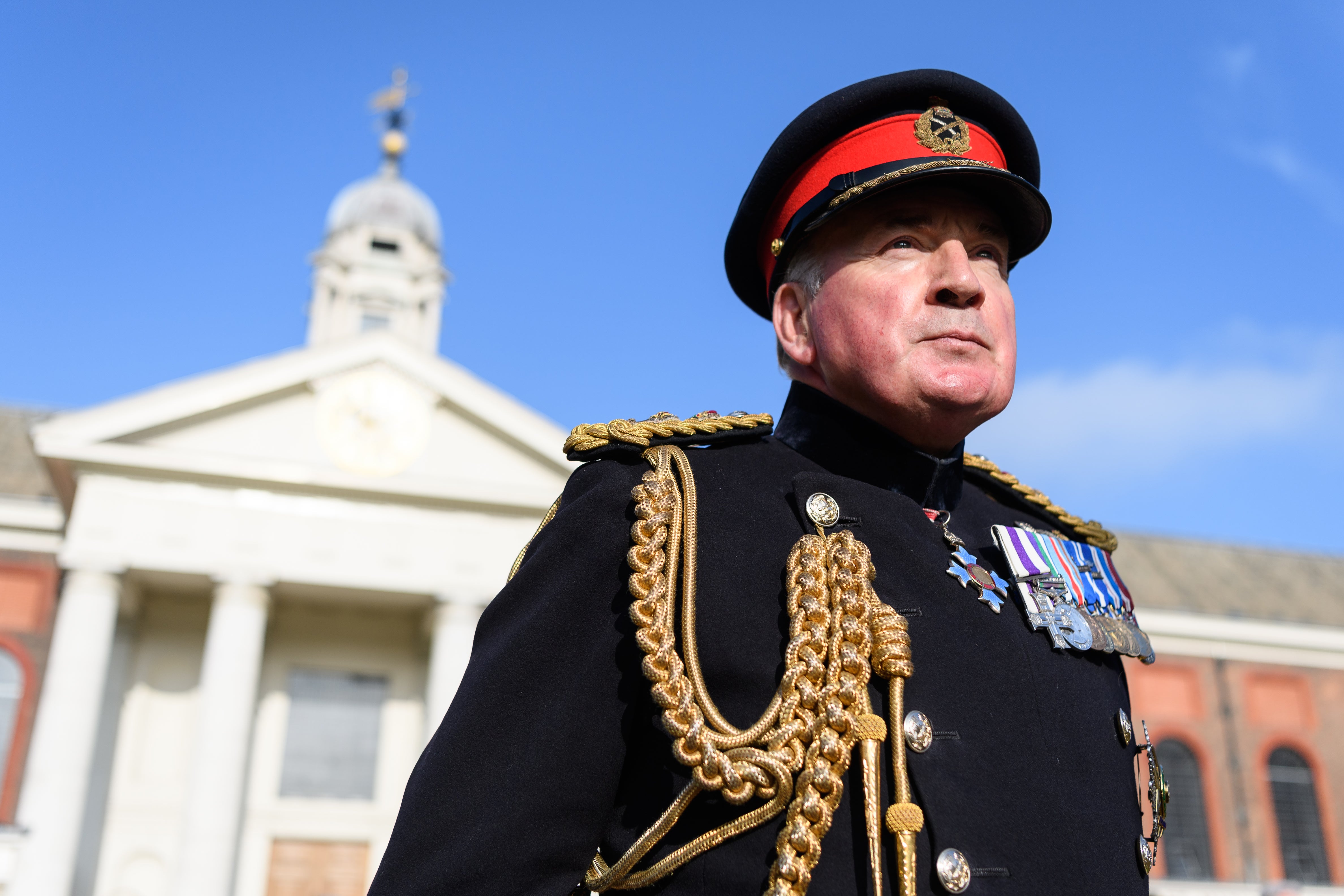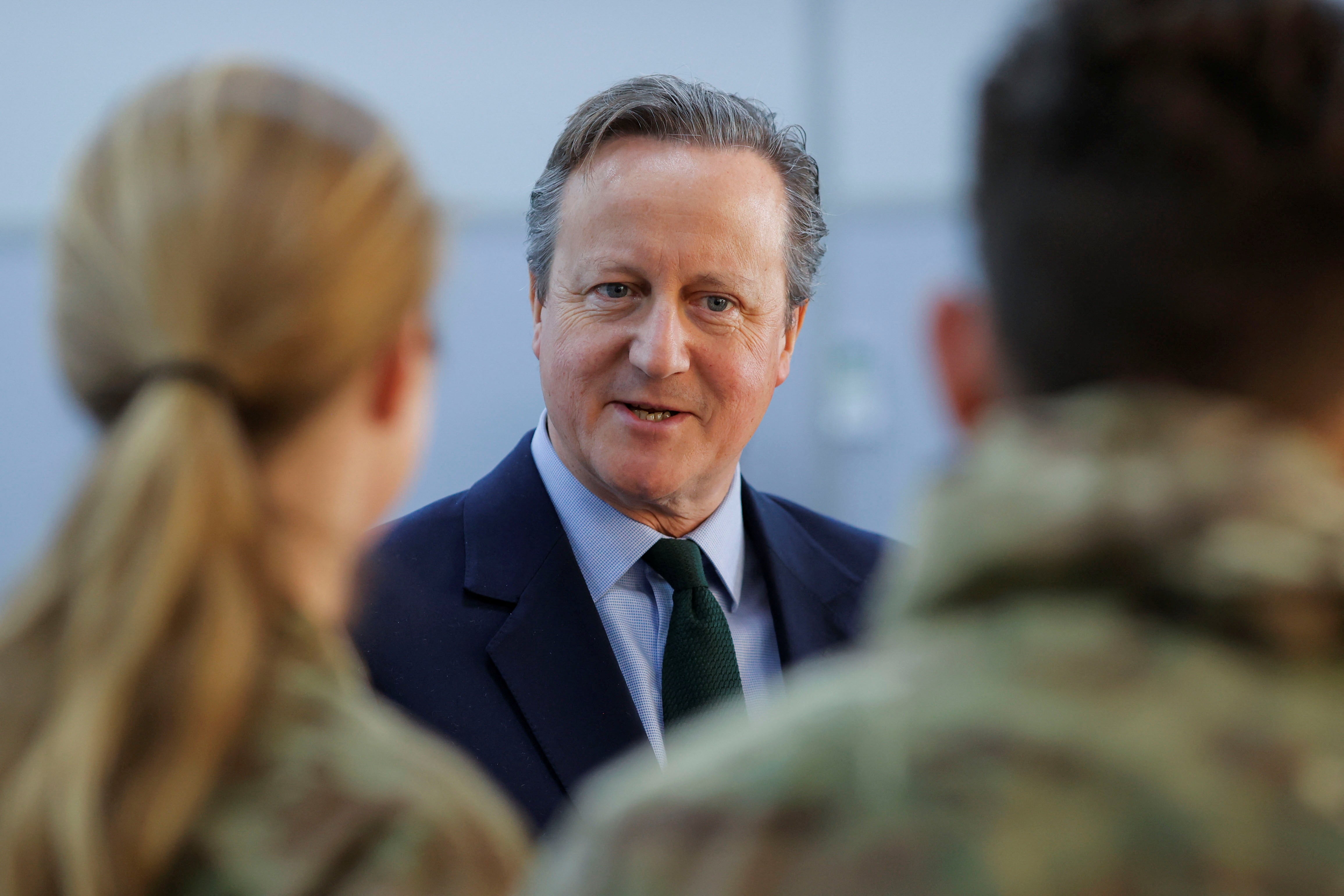Britons face call-up to fight in the armed forces if UK goes to war with Russia, top army chief warns
British men and women should be prepared for a “whole-of-nation undertaking” if Nato goes to war with Russia, warns the head of the British army
Your support helps us to tell the story
From reproductive rights to climate change to Big Tech, The Independent is on the ground when the story is developing. Whether it's investigating the financials of Elon Musk's pro-Trump PAC or producing our latest documentary, 'The A Word', which shines a light on the American women fighting for reproductive rights, we know how important it is to parse out the facts from the messaging.
At such a critical moment in US history, we need reporters on the ground. Your donation allows us to keep sending journalists to speak to both sides of the story.
The Independent is trusted by Americans across the entire political spectrum. And unlike many other quality news outlets, we choose not to lock Americans out of our reporting and analysis with paywalls. We believe quality journalism should be available to everyone, paid for by those who can afford it.
Your support makes all the difference.Britain must be prepared to form a “citizen army” of tens of thousands in the event of war with countries such as Russia, the head of the army has warned in an ominous intervention.
General Sir Patrick Sanders said that his forces, including all reserves, would not be large enough to defend the country if there was a war, and it was now essential for Britain to lay the foundations for “national mobilisation”.
Speaking at a conference on armoured warfare in southwest London, Gen Sanders said that within three years Britain should be able to increase its army to 120,000, including regular soldiers, reserves and a “strategic reserve” group – which is understood to mean retired troops who have been recalled.
According to the latest Ministry of Defence statistics, army regulars and reservists currently total 102,520.
“Our friends in Eastern and northern Europe, who feel the proximity of the Russian threat more acutely, are already acting prudently, laying the foundations for national mobilisation,” he said.
The chief of general staff is said to be opposed to conscription, but held that civilians need to be involved in defending the country at a time of conflict.
“We need an army designed to expand rapidly to enable the first echelon, resource the second echelon, and train and equip the citizen army that must follow,” he said.
“As the chairman of the Nato military committee warned just last week, and as the Swedish government has done, preparing Sweden for entry to Nato, taking preparatory steps to enable placing our societies on a war footing when needed are now not merely desirable, but essential.
“We will not be immune and as the pre-war generation we must similarly prepare – and that is a whole-of-nation undertaking.”
Asked about Gen Sanders’ remarks, Rishi Sunak’s official spokesperson said “hypothetical scenarios” about potential future conflicts were “not helpful”. When asked if he agreed with the general, the spokesperson replied simply “no”.
And on whether Rishi Sunak could rule out conscription in future circumstances, they said: “There is no suggestion of that. The government has no intention to follow through with that. The British military has a proud tradition of being a voluntary force. There are no plans to change that.”
The intervention by Gen Sanders comes just days after Nato military commander Admiral Rob Bauer said that the military alliance needed to prepare for conflict with Vladimir Putin’s forces in the next 20 years.

He said that a large number of civilians will have to be called upon if conflict accelerated in Europe and that governments needed to consider “mobilisation, reservists or conscription”.
Admiral Bauer said: “The discussion is much wider... People have to understand they play a role... The realisation that not everything is plannable and not everything is going to be hunky dory in the next 20 years.”
Gen Sanders added that the UK will not escape the consequences of all-out war and must be prepared for what may lie ahead. He said: “Ukraine brutally illustrates that regular armies start wars; citizen armies win them.”
Russia’s invasion of Ukraine he stressed was “not merely about the black soil of the Donbas, nor the re-establishment of a Russian empire, it’s about defeating our system and way of life politically, psychologically, and symbolically. How we respond as the pre-war generation will reverberate through history. Ukrainian bravery is buying time, for now.”
Gen Sanders, who is due to leave his post this year and will be replaced by Lieutenant General Sir Roly Walker, has been critical of cuts to the military and its effects in the past. In 2022 he described downsizing of the army as “perverse”, especially so “as a land war rages in Europe and Putin’s territorial ambitions extend into the rest of the decade, and beyond Ukraine”.
Last summer, he compared army vehicles like the Warrior and Challenger 2 tank to “rotary dial telephones in an iPhone age”. He said: “Our procurement record has been poor and our land industrial base has withered. Furthermore our army reserve is not as capable and credible as we need it to be.”

Speaking on Wednesday, Gen Sanders said: “Over the last 30 years, the army has been halved in size; in the last 12 years, we’ve absorbed a 28 per cent reduction”. And this was while there is “a fragile world order that our enemies wish to dismantle. I use that term with care, noting that the definition encompasses those who actively oppose or are hostile to our interests”.
While recruitment has been a problem through public services “applications to join the army are the highest in six years. Our nation’s youth are as ready to serve, to seek adventure, to find where they belong, and to better themselves as they ever were. I see the very best of them every day, selflessly committed to service in the armed forces. Generation Z serves with distinction today, like their peers of any generation”.
Admiral Sir Tony Radakin, the head of the military, has pointed out that the army will be boosted over the next decade with a £44bn programme. Gen Sanders added: “That money is just 18 per cent committed. During an electoral cycle, uncommitted money is vulnerable.”

Last week General Sir Richard Dannatt, a former general staff of the British Army, hit out at the shrinking size of the army. He said it had dropped from 102,000 personnel in 2006 to 74,000 today and was “falling fast”.
Writing in The Times, he drew parallels with the 1930s when the “woeful” state of the UK’s armed forces failed to deter Hitler. “There is a serious danger of history repeating itself,” he said.
Pointing to rising geopolitical uncertainty, Lord Dannatt said: “If our armed forces are not strong enough to deter future aggression from Moscow or Beijing it will not be a small war to contend with but a major one.”
Under government proposals, the size of the regular army will be cut to 73,000 troops by 2025, but analysis by The Times suggested numbers could drop below that as soon as next year and continue on a steep downward trajectory.
If the army continues to shed troops at the current rate, the number of regular soldiers will fall below 70,000 by 2026, according to the figures compiled by the newspaper.




Join our commenting forum
Join thought-provoking conversations, follow other Independent readers and see their replies
Comments